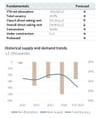NEW ROCHELLE—The New Rochelle City Council unanimously approved on Dec. 20 significant advancements to its historic redevelopment, enabling the continuation of the district’s transformation that began six years ago.
The city’s efforts to adopt a form-based zoning code providing certainty for developers already have helped attract $2.2 billion in private investment, resulting in the development of 9.2 million square feet of space downtown. To date, New Rochelle has approved 32 development projects, with six projects already completed and 14 under construction.
Positioning the city to emerge from the pandemic poised for continued growth, the updated plan will bolster its economic resiliency, promote stronger social connectivity within the downtown and create an important connection between the development of the waterfront and the transit-oriented development sites downtown, city officials stated.
The adopted amendments include a new waterfront overlay zone, adding a seventh district to the six zones created in 2015; 3,000 more units of housing, including 700 along the waterfront; and additions to the Community Bonus Benefits Program (CBB) to allow builders additional stories in exchange for providing community benefits such as green infrastructure, sustainability and climate resiliency improvements, which now can be outside the specific overlay zones. Increased opportunities for local Minority and Women Owned Business Enterprises (MWBE) and more affordable housing for local residents are also incorporated into the new development plan.
“New Rochelle has enjoyed unprecedented economic growth, even through the difficult challenges of the pandemic, and now has an exciting opportunity to build on and expand our prior success,” said New Rochelle Mayor Noam Bramson. “These forward-looking updates to our downtown plan lean heavily into environmental and social governance, thereby ensuring that growth in our community is sustainable, equitable, and inclusive, while also creating a powerful magnet for ESG investment.”
The zoning updates follow an extensive community engagement campaign over the last year by the city and a generic environmental review, which sought to increase connectivity between downtown —where the bulk of the development has been focused—the waterfront and other areas of the city to increase access to recreational and green space. With demand for the city’s residential properties strong, the amendments also will formalize a shift of some mixed-use spaces to residential use to reflect the current hybrid live/work environment and significant ongoing leasing activity, city officials stressed.
In 2015, the City Council approved a game-changing redevelopment that stimulated billions of dollars in economic investment in New Rochelle. The form-based zoning code adopted ensured that as long as developers adhered to specific criteria within each overlay zone, they could expect project approval within 90 days, faster than almost any other municipality in the region. In the last six years working closely with its master developer RXR Realty, the city has approved 6,865 new residential units, of which 3,600 are completed or under construction.
“These zoning updates reflect the feedback we’ve heard from residents and stakeholders alike, that as we look to the future, we must increase opportunities to connect all the diverse offerings New Rochelle provides, bolster important environmental improvements such as green and sustainable infrastructure, provide more opportunities for local and minority owned businesses, and create more affordable housing for our residents,” said New Rochelle Department of Development Interim Commissioner Kathleen Gill.
“The unanimous approval of this zoning update is an example of what can be accomplished when a city works with the community and stakeholders alike to reach a common goal. I look forward to the implementation of this new zoning resulting in the continued unprecedented growth and investment in our downtown area,” said New Rochelle City Manager Charles B. Strome III.
The City of New Rochelle has been working with developers to cultivate additional MWBE opportunities throughout the redevelopment and to promote and increase accessibility to affordable housing opportunities for residents. Those efforts include eliminating the provision that allowed developers to build off-site affordable units to keep such units on-site, increasing the fee for developers who opt out of affordable housing requirements and establishing a sliding-scale credit system to increase accessibility to new housing.









